
Sakakah: The Oasis of Northern Saudi Arabia
Nestled in the heart of the Al-Jawf region, Sakakah is a hidden gem in northern Saudi Arabia. This city is a perfect blend of ancient history and modern development. Known for its fertile lands and abundant date palms, Sakakah offers a unique experience for travelers looking to explore the lesser-known parts of the Kingdom. Sakakah is home to several historical sites that give a glimpse into its rich past. The ancient Rajajil standing stones, often referred to as the 'Stonehenge of Arabia,' are a must-visit. These megalithic structures date back to 4000 BC and are a fascinating sight for history enthusiasts. Another significant landmark is the Za'abal Castle, perched on a hill and offering panoramic views of the city and its surroundings. In addition to its historical treasures, Sakakah has a vibrant cultural scene. The city is known for its traditional crafts, particularly pottery and weaving, which you can see in local markets and workshops. Food lovers will enjoy the local cuisine, with dishes like Kabsa and Jareesh that are rich in flavor and tradition. For nature lovers, the Al-Rajajil area and the nearby oasis are perfect for a day of exploration. The lush greenery and serene environment provide a stark contrast to the arid desert landscape that surrounds the city. Whether you are a history buff, a culture enthusiast, or a nature lover, Sakakah has something to offer for every traveler.
Local tips in Sakakah
- Visit the Rajajil Standing Stones early in the morning to avoid the heat and crowds.
- Try the local dates; Sakakah is famous for its high-quality date palms.
- Wear comfortable shoes if you plan to explore Za'abal Castle, as the climb can be steep.
- Don't miss the local markets for traditional crafts and souvenirs.
- Respect local customs and dress modestly, especially when visiting historical and cultural sites.
Sakakah: The Oasis of Northern Saudi Arabia
Nestled in the heart of the Al-Jawf region, Sakakah is a hidden gem in northern Saudi Arabia. This city is a perfect blend of ancient history and modern development. Known for its fertile lands and abundant date palms, Sakakah offers a unique experience for travelers looking to explore the lesser-known parts of the Kingdom. Sakakah is home to several historical sites that give a glimpse into its rich past. The ancient Rajajil standing stones, often referred to as the 'Stonehenge of Arabia,' are a must-visit. These megalithic structures date back to 4000 BC and are a fascinating sight for history enthusiasts. Another significant landmark is the Za'abal Castle, perched on a hill and offering panoramic views of the city and its surroundings. In addition to its historical treasures, Sakakah has a vibrant cultural scene. The city is known for its traditional crafts, particularly pottery and weaving, which you can see in local markets and workshops. Food lovers will enjoy the local cuisine, with dishes like Kabsa and Jareesh that are rich in flavor and tradition. For nature lovers, the Al-Rajajil area and the nearby oasis are perfect for a day of exploration. The lush greenery and serene environment provide a stark contrast to the arid desert landscape that surrounds the city. Whether you are a history buff, a culture enthusiast, or a nature lover, Sakakah has something to offer for every traveler.
When is the best time to go to Sakakah?
Iconic landmarks you can’t miss
Park Lake Jandal in Al-Joufㅤ
Discover tranquility and beauty at Park Lake Jandal, a stunning garden oasis in Al-Jouf, perfect for relaxation and family outings.
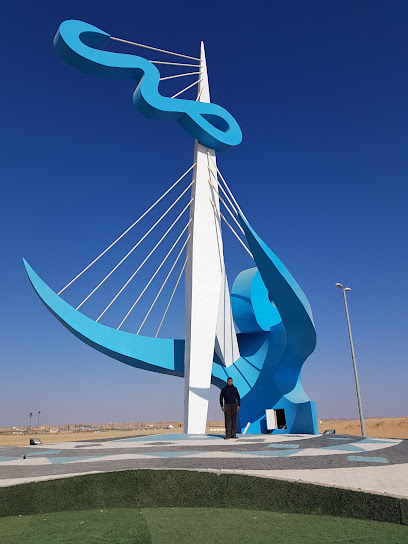
Marid Castle
Explore the ancient Marid Castle in Dumat Al Jandal, a historical marvel showcasing Saudi Arabia's rich heritage and stunning architectural beauty.
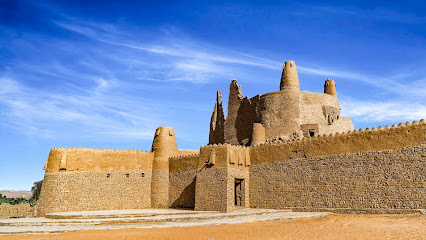
Raoum Inn Hotel
Experience unrivaled comfort and local charm at Raoum Inn Hotel in Sakaka, the perfect base for your Saudi Arabian adventure.
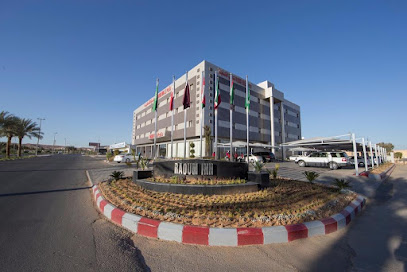
Al-Nakheel Park
Discover tranquility at Al-Nakheel Park in Sakaka, an oasis of nature with lush landscapes, vibrant flowers, and serene pathways perfect for relaxation.
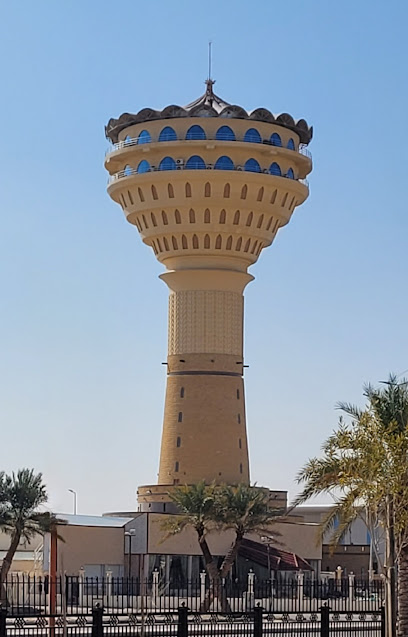
قلعة زعبل |Zaabal Castle
Explore the ancient Zaabal Castle in Sakaka, where history, architecture, and stunning views come together for a remarkable travel experience.
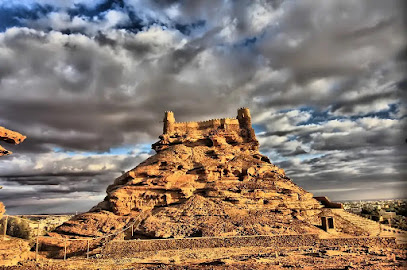
Azizia Park
Discover Azizia Park, a tranquil garden oasis in Sakaka, perfect for relaxation, family fun, and embracing the beauty of nature.
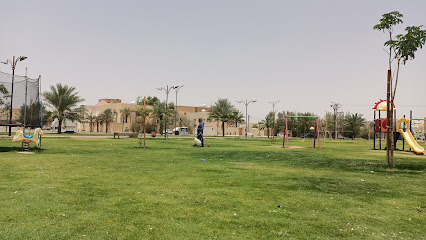
Al Jouf Games
Explore a world of fun at Al Jouf Games, a premier children's amusement center in Sakaka, offering thrilling rides and family-friendly experiences.
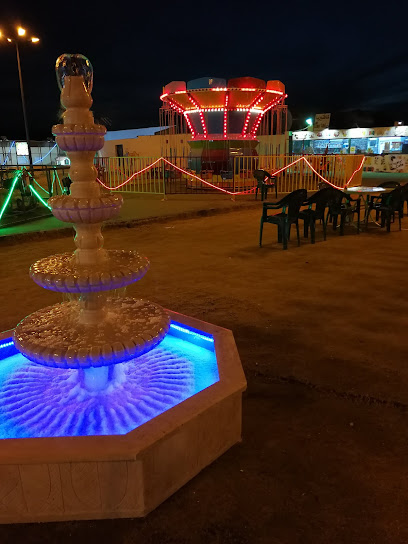
Qara Mountain Park
Explore the serene landscapes of Qara Mountain Park, a natural oasis in Sakaka offering scenic trails and diverse wildlife for every nature enthusiast.
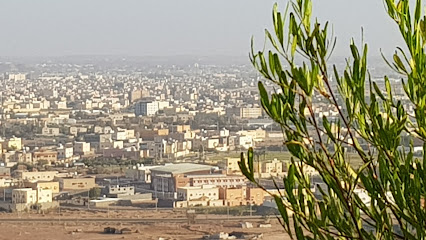
Fakhamat Al Orjoana Apartment
Discover the perfect blend of comfort and culture at Fakhamat Al Orjoana Apartment in Sakaka, your home away from home.
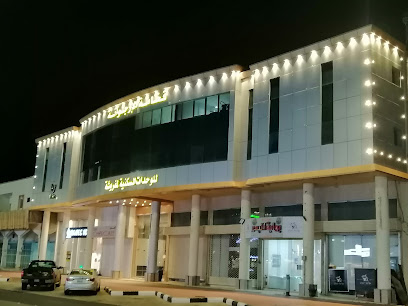
Rajajil Columns
Discover the Rajajil Columns in Sakakah, Saudi Arabia – a historical landmark that offers a glimpse into the region's ancient past and architectural wonders.
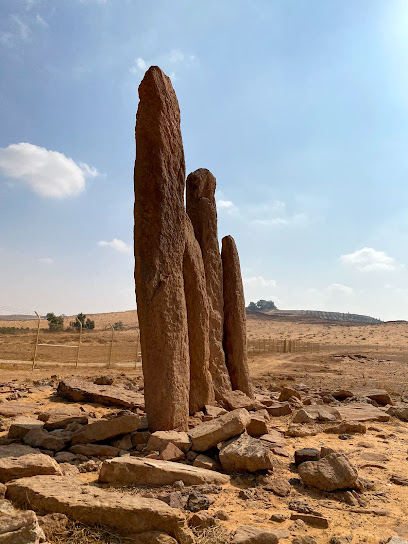
Sesera Archeological Well
Explore the ancient history of the Sesera Archeological Well in Sakaka, a site of archaeological significance surrounded by breathtaking desert landscapes.
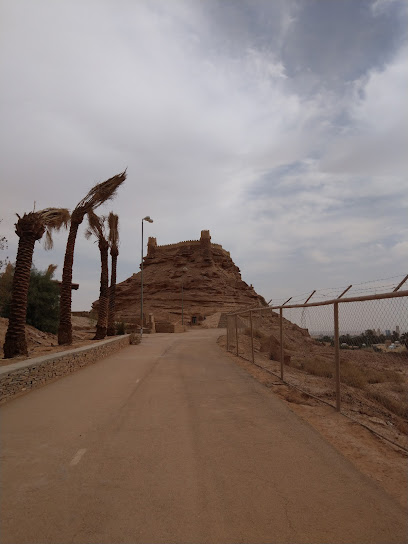
Le Park Concord Hotel - Sakaka
Discover unparalleled comfort and warmth at Le Park Concord Hotel in Sakaka, a perfect blend of modern amenities and traditional Saudi hospitality.

Saptco
Discover the importance of Saptco in Sakaka, your essential transportation hub for exploring the beautiful landscapes of Saudi Arabia.
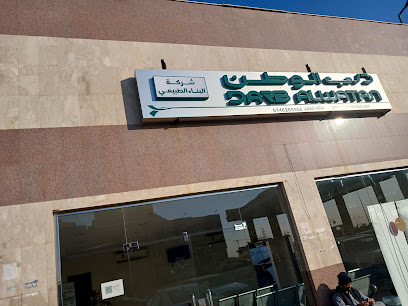
Castle Qadeer
Discover Castle Qadeer, a historical landmark in Sakaka, where rich heritage meets stunning architecture in an unforgettable setting.
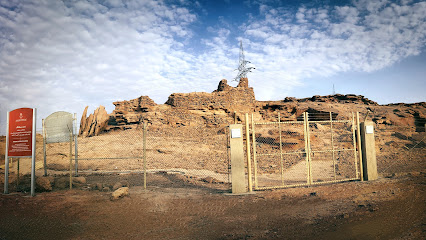
حي الضلع |Al-Dula neighborhood
Explore the rich cultural heritage of Sakaka at Al-Dula neighborhood, a blend of local governance and historical insights in a vibrant setting.
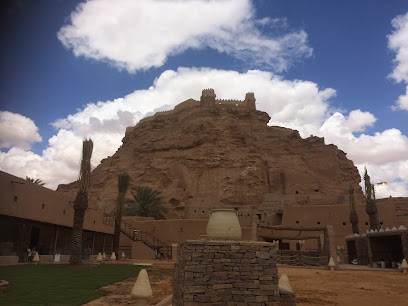
Unmissable attractions to see
Park Lake Jandal in Al-Joufㅤ
Discover the tranquility of Park Lake Jandal in Al-Jouf, a serene oasis surrounded by stunning desert landscapes and lush greenery.
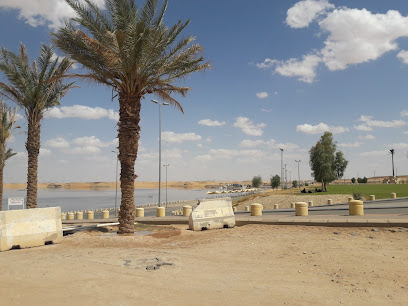
Marid Castle
Experience the rich history and stunning architecture of Marid Castle in Dumat al-Jandal, a must-visit destination for culture and history enthusiasts.
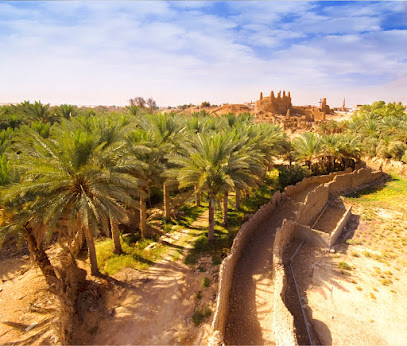
Al-Nakheel Park
Experience tranquility and family fun at Al-Nakheel Park, Sakaka's green oasis filled with lush landscapes and recreational activities.
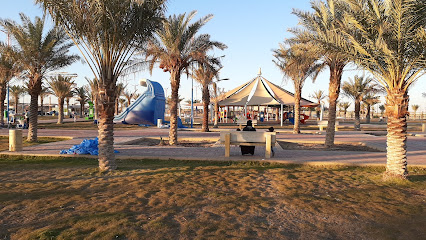
قلعة زعبل |Zaabal Castle
Visit Zaabal Castle in Sakaka, a stunning heritage site offering insights into Saudi Arabia's history and breathtaking views.
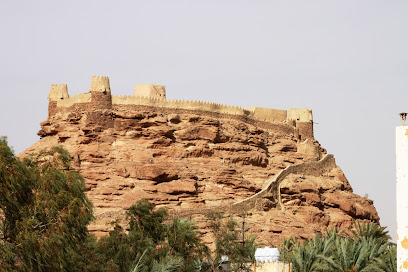
Azizia Park
Discover the serene beauty of Azizia Park in Sakaka, where lush gardens and peaceful pathways offer a perfect retreat for nature lovers and families.
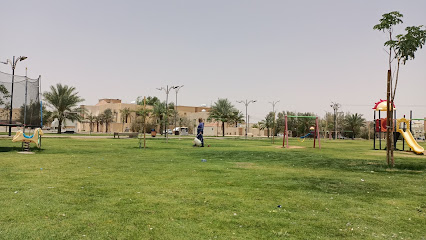
Qara Mountain Park
Explore Qara Mountain Park: A serene retreat in Sakaka offering stunning landscapes, scenic trails, and family-friendly picnic spots.
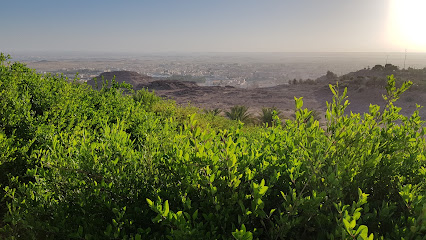
Rajajil Columns
Explore the enchanting Rajajil Columns in Sakakah, a historical landmark that reveals the mysteries of ancient civilizations and stunning natural beauty.
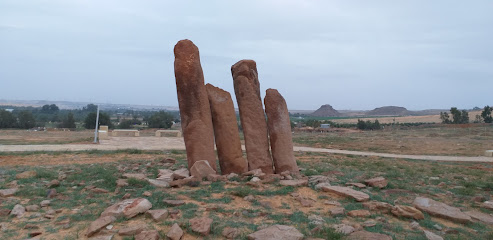
Sesera Archeological Well
Discover the rich history of the Sesera Archeological Well in Sakaka, where ancient civilizations come to life in a captivating archaeological exploration.
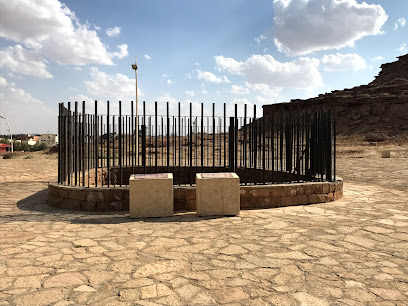
مطل سكاكا
Discover breathtaking views and serene landscapes at Sakaka Lookout, the perfect destination for nature lovers and photography enthusiasts in Saudi Arabia.
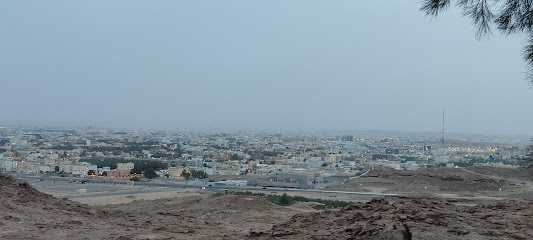
Castle Qadeer
Discover the captivating history and stunning architecture of Castle Qadeer, a must-visit historical landmark in Sakaka, Saudi Arabia.
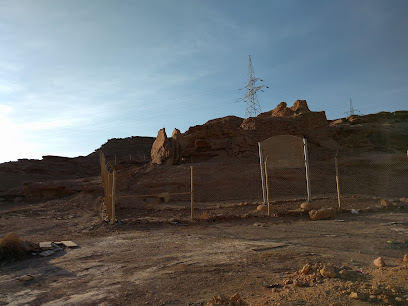
Sisra well
Experience the historical significance and serene beauty of Sisra Well, a treasured landmark in Sakaka, Saudi Arabia.
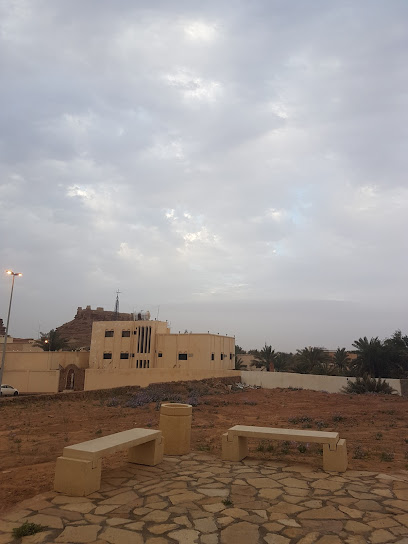
قصر مرسال
Discover the historic Qasr Marsal in Sakaka, an architectural masterpiece that embodies the rich heritage and culture of the region.

Olive in hand roadside attraction
Discover the whimsical Olive in Hand roadside attraction in Sakaka, a unique photo opportunity that celebrates local culture and adds fun to your travels.
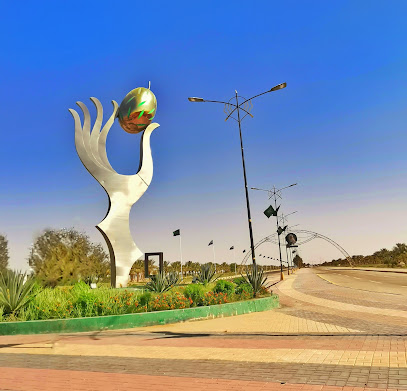
Essential places to dine
Al Tazaj
Discover the delicious taste of grilled chicken and kebabs at Al Tazaj in Sakaka—where tradition meets fast food excellence.
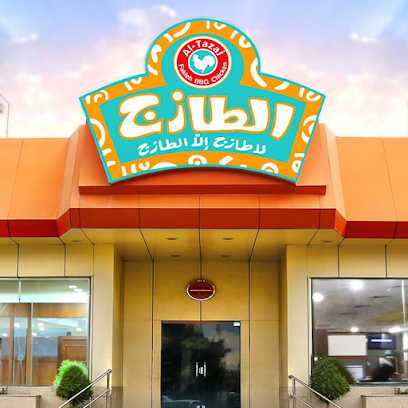
alRomansiah
Experience the rich flavors of Saudi Arabia at alRomansiah in Sakaka – where tradition meets taste in every dish.
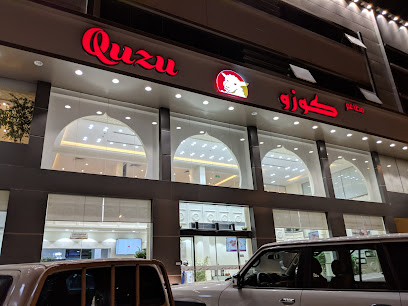
Amas Restaurant
Experience authentic Italian cuisine at Amas Restaurant in Sakaka - where every dish tells a story.
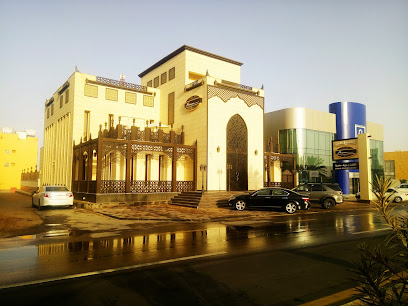
Al Azraq Grill
Discover authentic Middle Eastern flavors at Al Azraq Grill in Sakaka – where every meal is a celebration of culinary tradition.
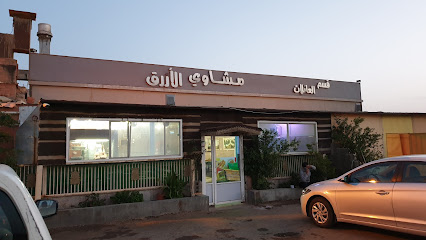
مطعم تراث الجوف
Explore authentic Saudi Arabian flavors at مطعم تراث الجوف - where tradition meets taste in Sakaka.
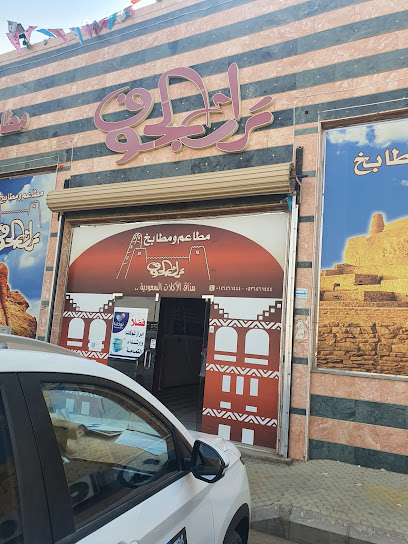
Indian Dome
Savor authentic Indian cuisine in Sakaka at Indian Dome - a vibrant restaurant offering diverse dishes in a cultural setting.
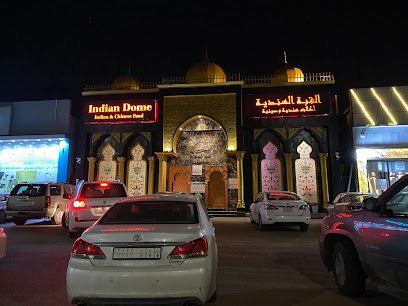
Waterfall Restaurant north
Discover the authentic taste of Sakaka at Waterfall Restaurant, specializing in barbecue and delightful breakfast offerings.
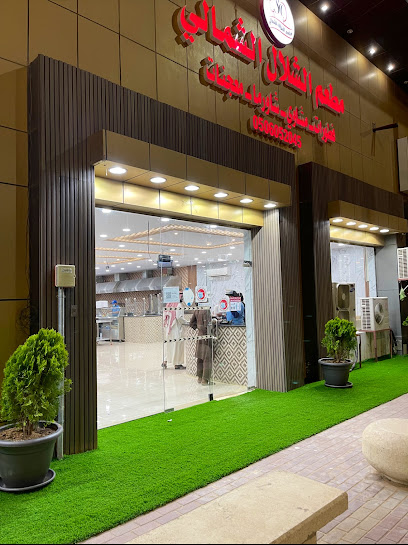
One 100 Pound
Discover the culinary delights at One 100 Pound in Sakaka – where traditional flavors meet modern dining.
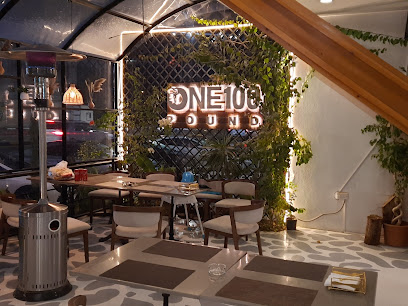
Hollow restaurant and coffee
Discover the essence of local flavors at Hollow Restaurant and Coffee in Sakaka - where every meal is an experience.
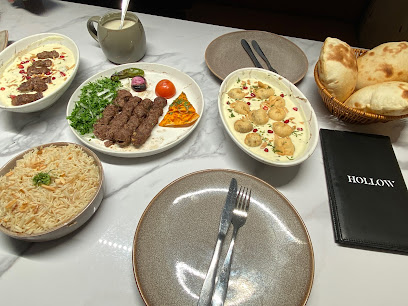
AlBaik
Experience the irresistible taste of AlBaik's famous fried chicken in Sakaka – a must-visit fast-food destination for every traveler.
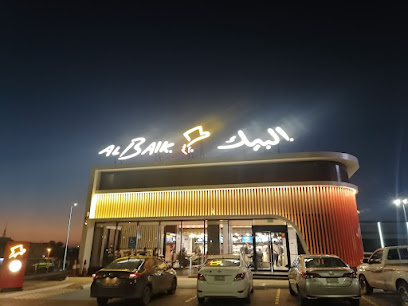
Restaurant Ahl Al-Jouf
Experience authentic Saudi flavors at Restaurant Ahl Al-Jouf in Sakaka – a culinary journey through tradition and taste.
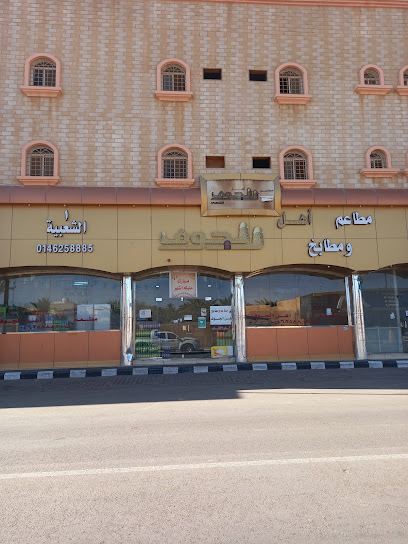
مطعم دانة الهند - Danat Al Hend Restaurant
Experience the authentic taste of India at Danat Al Hend Restaurant in Sakaka - a must-visit for food lovers seeking vibrant flavors.
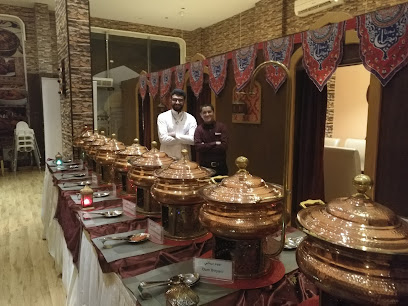
مطعم واحد حاشي سكاكا
Discover the authentic flavors of Saudi Arabia at مطعم واحد حاشي سكاكا, where tradition meets taste in every dish.
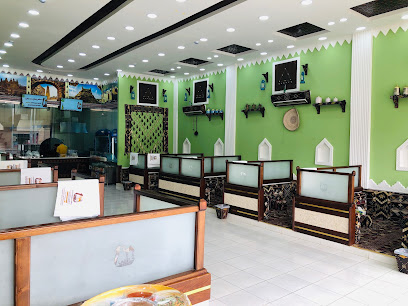
Al-Eishan for caltural food
Discover authentic Saudi flavors at Al-Eishan for Cultural Food in Sakaka - a culinary gem celebrating rich traditions.
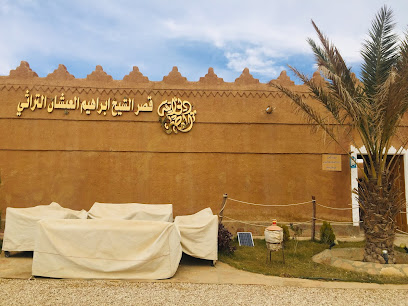
Bike Restaurant
Discover delightful flavors at Bike Restaurant in Sakaka - where local cuisine meets a vibrant atmosphere for an unforgettable dining experience.
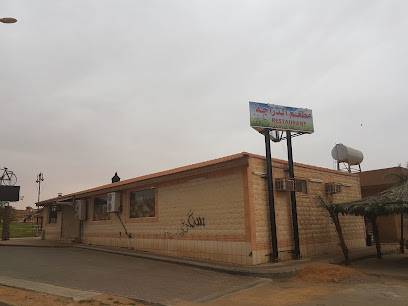
Markets, malls and hidden boutiques
أسواق العثيم | Othaim Markets
Experience the essence of local shopping at Othaim Markets in Sakaka, offering fresh produce, cultural foods, and a vibrant atmosphere.
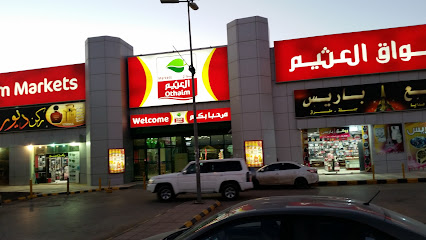
Carrefour Al Jouf Center
Explore Carrefour Al Jouf Center, a premier hypermarket in Sakaka, offering a rich selection of groceries, household goods, and local products.
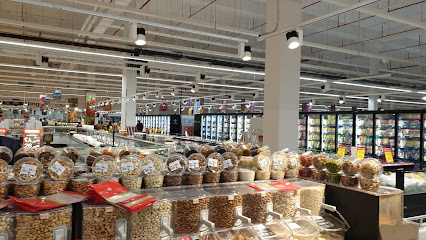
NCT
Discover NCT in Sakaka, where fashion meets culture with a stunning selection of clothing and accessories for every traveler.
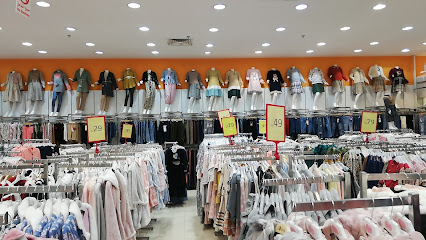
Life Mall
Explore Life Mall in Sakaka: A vibrant shopping destination with diverse retail, delicious dining, and engaging entertainment options.
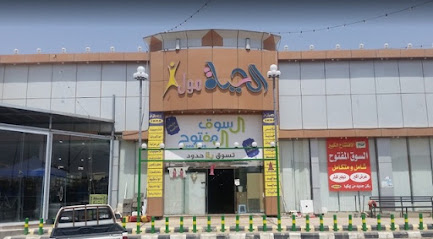
Al Jouf Center
Explore Al Jouf Center, a premier shopping mall in Sakaka, offering a delightful blend of retail, dining, and entertainment options for every visitor.
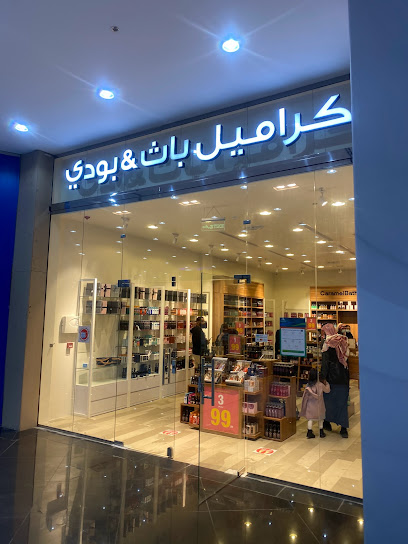
Aromatic Specialty Coffee
Discover the rich flavors and aromatic brews at Aromatic Specialty Coffee, a must-visit café in Sakaka for every coffee enthusiast.
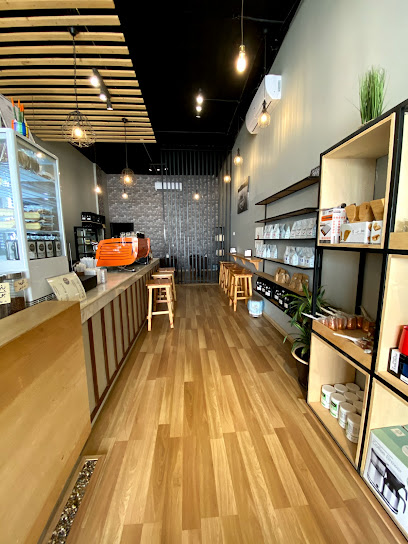
Jarir Bookstore
Discover a diverse range of books, art supplies, and electronics at Jarir Bookstore, your ultimate shopping destination in Sakaka.
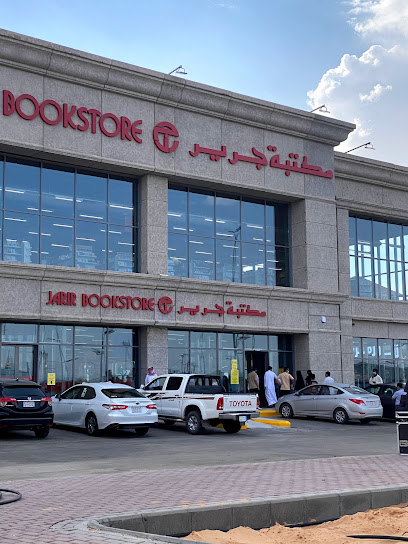
Home Centre
Explore a wide range of stylish furniture and accessories at Home Centre, located in the vibrant Oasis Mall of Sakaka.
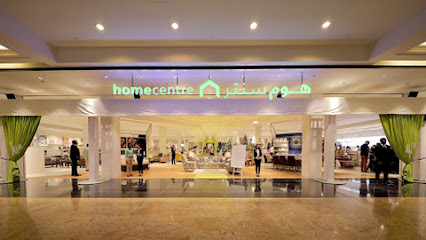
Sakakah Aljouf Al Jawf Saidi Arabia
Explore Sakakah Aljouf for exceptional bedroom furniture and immerse in the rich craftsmanship of Saudi Arabia.
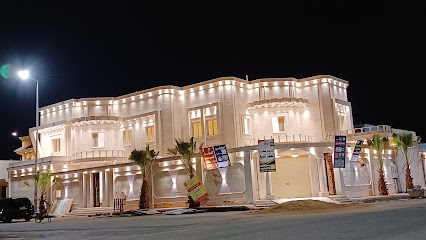
Rahaf Peony Stationery
Discover the artistic charm of Rahaf Peony Stationery, a unique gift shop and florist in Sakaka, perfect for memorable souvenirs and thoughtful presents.
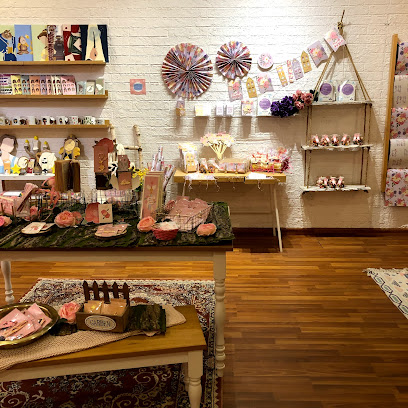
ورود روز
Explore ورود روز in Sakaka for unique gifts and authentic local crafts that embody the spirit of the region.
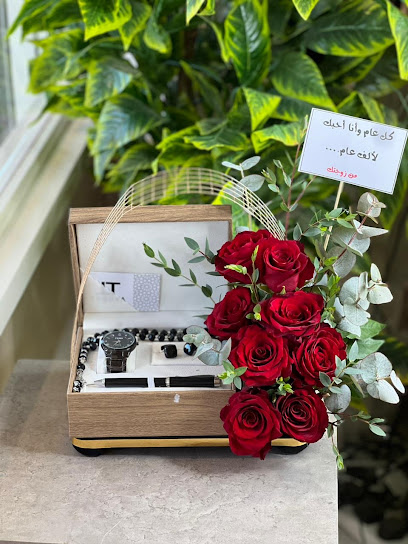
نزار للمواد الغذائية
Discover the vibrant flavors of Sakaka at Nizar Grocery Store, the perfect spot for authentic local ingredients and culinary delights.

Centrepoint
Discover Centrepoint in Sakaka: Your ultimate shopping destination for fashion, beauty, and family essentials in the heart of Al Jouf Mall.
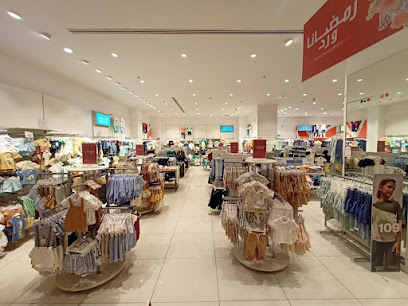
REDTAG
Explore fashion and style at REDTAG in Sakaka, your one-stop destination for clothing, cosmetics, and home goods.
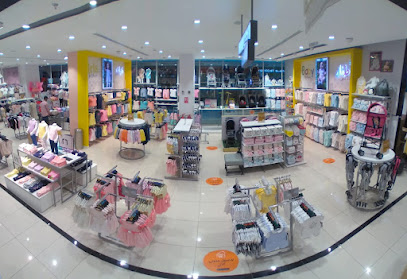
Lifestyle
Discover the ultimate shopping destination in Sakaka with Lifestyle, featuring a blend of fashion, beauty, and home goods at Al Jouf Plaza.
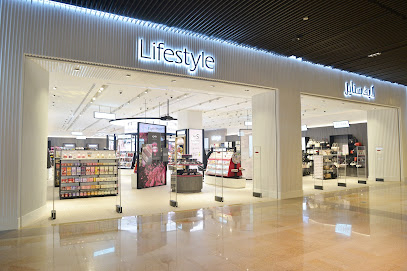
Essential bars & hidden hideouts
Amas Restaurant
Experience the authentic taste of Italy at Amas Restaurant, a must-visit culinary destination in Sakaka for food enthusiasts.
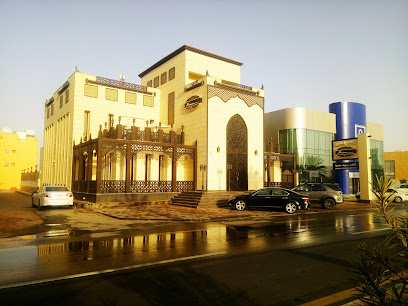
Hollow restaurant and coffee
Discover the flavors of Sakaka at Hollow Restaurant and Coffee, where local cuisine meets exceptional coffee in a cozy setting.
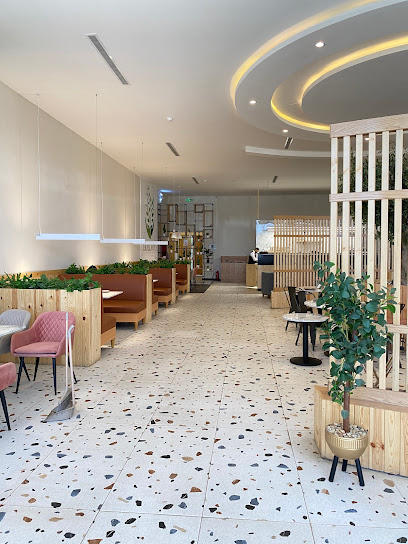
مطعم دانة الهند - Danat Al Hend Restaurant
Discover authentic Indian cuisine at Danat Al Hend Restaurant in Sakaka, where every dish tells a story of rich flavors and culinary heritage.
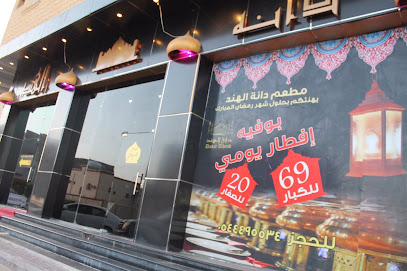
مطعم ولاونج 2M
Enjoy delightful Middle Eastern cuisine and a vibrant lounge experience at مطعم ولاونج 2M in Sakaka, perfect for dining and socializing.
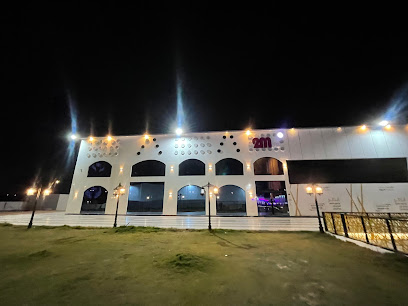
Alqayed cafe and shisha
Discover Alqayed Cafe and Shisha in Sakaka for an authentic hookah experience amidst a vibrant social atmosphere.
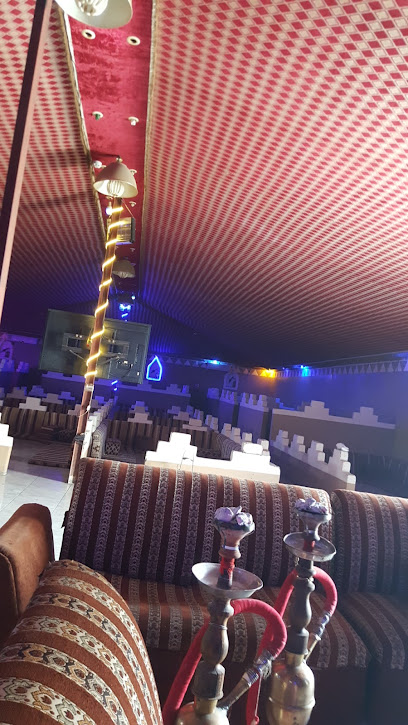
مطعم بيست ميل Best Meal
Discover the vibrant flavors of Saudi Arabia at مطعم بيست ميل Best Meal, where traditional dishes meet contemporary dining in Sakaka.
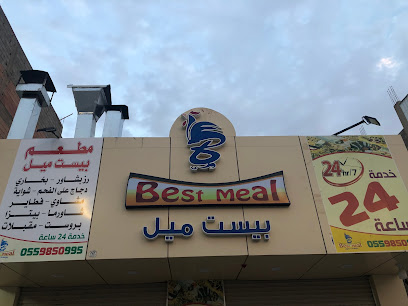
مساء وقمرا النسائي
Discover the flavors of Sakaka at Evening Moon, a restaurant that blends tradition with modern culinary excellence.
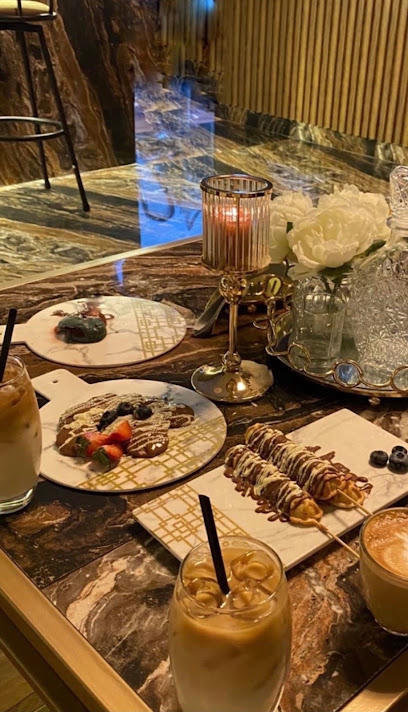
لاونج ثري تي إتش / LOUNGE 3TH
Discover the vibrant atmosphere of Lounge 3TH, a premier hookah bar in Sakaka offering exquisite cocktails and rich espresso.
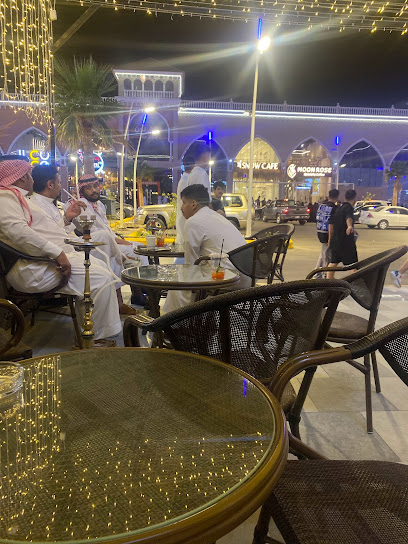
Pakistani hotel (مطعم باكستاني)
Savor the exquisite tastes of Pakistan in Sakaka at the Pakistani Hotel, where every dish tells a story of tradition and flavor.
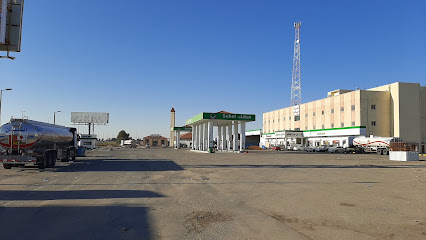
Boofiya Huda بوفية قاسم
Experience the authentic flavors of Sakaka at Boofiya Huda, a vibrant restaurant showcasing the best of local cuisine.
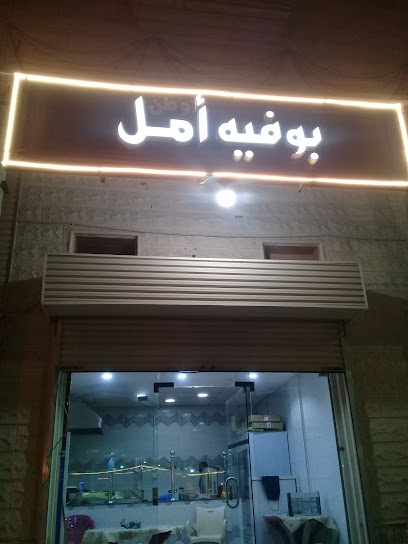
شاورما الحفرة
Experience the authentic taste of shawarma and other Middle Eastern delights at Shwarma Al-Hafra in Sakaka.
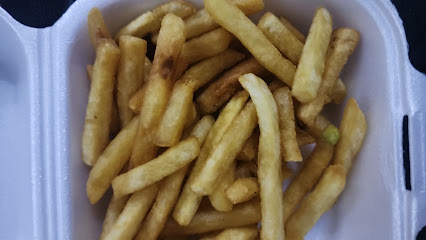
بوفية بيت الصفا
Experience the rich flavors of Saudi cuisine at Bofyat Bayt Al-Safa, a culinary treasure in Sakaka offering authentic dishes in a warm atmosphere.
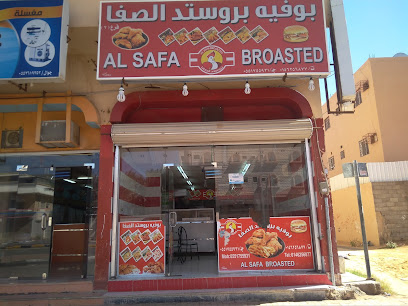
ثيرتي سفن (37)
Savor delicious fast food with local flavors at Thirtee-Seven (37) in Sakaka, a perfect stop for every traveler.
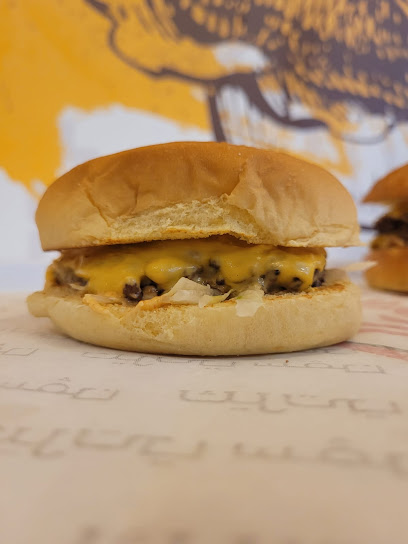
Cafeteria Hajar. مطعم هاجر للوجبات السريعة
Experience the best of fast food at Cafeteria Hajar in Sakaka, where delicious meals meet friendly service in a vibrant atmosphere.
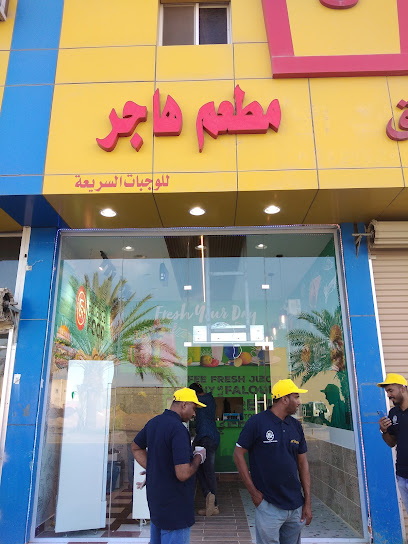
ستيكنجي
Savor the best of American cuisine at Stikengi in Sakaka, where every dish is crafted for a delightful dining experience.
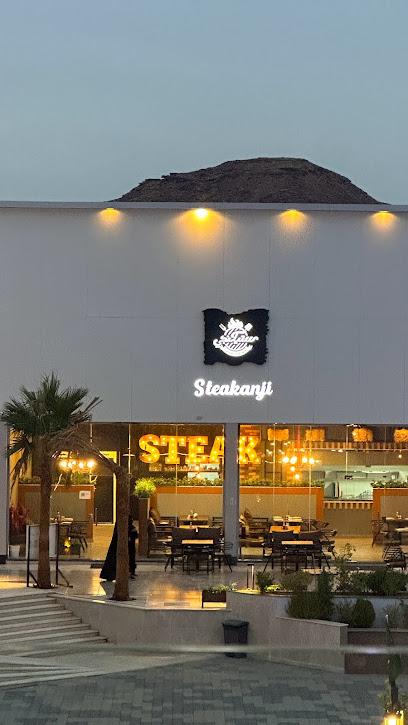
Local Phrases
-
- HelloMarhaban
[mar-ha-ban] - GoodbyeMa'a as-salama
[ma-a as-sa-la-ma] - YesNa'am
[na-am] - NoLa
[la] - Please/You're welcomeMin fadlak
[min fad-lak] - Thank youShukran
[shuk-ran] - Excuse me/SorryAfuwan
[a-fu-wan] - How are you?Kaifa halak?
[kai-fa ha-lak] - Fine. And you?Bikhair. Wa ant?
[bi-khair. wa ant] - Do you speak English?Hal tatakallam al-ingliziya?
[hal ta-ta-ka-llam al-ing-li-zi-ya] - I don't understandAna la afham
[a-na la af-ham]
- HelloMarhaban
-
- I'd like to see the menu, pleaseArd an ara al-qayimah, min fadlak
[ard an a-ra al-ka-yi-ma, min fad-lak] - I don't eat meatAna la akul al-lahm
[a-na la a-kul al-la-hm] - Cheers!Fi sahetak!
[fi sa-he-tak] - I would like to pay, pleaseUrīdu an adfa', min fadlak
[u-ri-du an ad-fa', min fad-lak]
- I'd like to see the menu, pleaseArd an ara al-qayimah, min fadlak
-
- Help!Musaidah!
[mu-sai-dah] - Go away!Ij' min huna!
[ij' min hu-na] - Call the Police!Idha' bil-shurtah!
[id-ha' bil-shur-tah] - Call a doctor!Idha' bil-tabib!
[id-ha' bil-ta-bib] - I'm lostTalat tareeqi
[ta-lat ta-ree-qi] - I'm illAna mareed
[a-na ma-reed]
- Help!Musaidah!
-
- I'd like to buy...Arju an ashtar...
[ar-ju an ash-tar] - I'm just lookingAna faqat atathabbat
[a-na fa-qat a-ta-thab-bat] - How much is it?Kam thamanuh?
[kam tha-ma-nuh] - That's too expensiveHatha ghali jiddan
[ha-tha gha-li jid-dan] - Can you lower the price?Hal tastatiu tasf althaman?
[hal tas-ta-ti-u tas-f al-tha-man]
- I'd like to buy...Arju an ashtar...
-
- What time is it?Kam as-sa'ah?
[kam as-sa-ah] - It's one o'clockAl-wahidah
[al-wa-hi-dah] - Half past (10)Nisf ba'd al-asharah
[nis-f ba'd al-a-sha-rah] - MorningSabaah
[sa-ba-ah] - AfternoonAl-ghad
[al-ghad] - EveningAl-masa'
[al-ma-sa] - YesterdayAms
[ams] - TodayAl-yawm
[al-yawm] - TomorrowGhadan
[gha-dan] - 1Waahid
[wa-hid] - 2Ithnayn
[ith-na-yn] - 3Thalatha
[tha-la-tha] - 4Arba'a
[ar-ba-a] - 5Khamsah
[kham-sa] - 6Sittah
[sit-ta] - 7Sab'ah
[sab-a] - 8Thamania
[tha-ma-ni-a] - 9Tis'ah
[tis-a] - 10Asharah
[a-sha-rah]
- What time is it?Kam as-sa'ah?
-
- Where's a/the...?Ayna al...
[ai-na al] - What's the address?Ma huwa al-alamat?
[ma hu-wa al-a-la-mat] - Can you show me (on the map)?Hal tastatiu an tuuriyani (ala alkharīṭah)?
[hal tas-ta-ti-u an tuu-ri-ya-ni (a-la al-kha-ri-tah)] - When's the next (bus)?Matā yajur al-bus al-qadim?
[ma-ta ya-jur al-bus al-qa-dim] - A ticket (to ....)Tathiq (ila ...)
[ta-thiq (i-la ...)]
- Where's a/the...?Ayna al...
History of Sakakah
-
Sakakah is located in the Al-Jouf region, which has a rich history dating back to ancient times. The area was a vital crossroads of trade routes and a hub for various civilizations. Archaeological discoveries in the region, such as those at the Rajajil standing stones, suggest that the area was inhabited as far back as 4,000 BCE. These standing stones, often referred to as the 'Stonehenge of Arabia,' are believed to have served religious or astronomical purposes.
-
Sakakah and the surrounding Al-Jouf region were significantly influenced by the Nabateans, an ancient Arab people who built the city of Petra in Jordan. The Nabateans established trade routes that passed through Al-Jouf, facilitating the exchange of goods such as spices, incense, and textiles. Their presence is evidenced by the Nabatean inscriptions and rock carvings found in the area.
-
With the advent of Islam in the 7th century CE, Sakakah became part of the expanding Islamic empire. The region witnessed the spread of Islamic culture, architecture, and trade practices. During this period, many mosques and fortresses were built, some of which still stand today, showcasing the architectural prowess of the early Islamic period.
-
In the 16th century, Sakakah came under Ottoman rule. The Ottomans constructed several fortifications in the area to protect their trade routes and maintain control over the region. The Za'bal Castle, perched on a hill overlooking Sakakah, is a testament to the Ottoman military architecture and strategic importance of the city during this era.
-
With the establishment of the Kingdom of Saudi Arabia in 1932, Sakakah began to modernize and develop. The discovery of oil and the subsequent economic boom led to significant investments in infrastructure, education, and healthcare in the region. Today, Sakakah is a thriving city that balances its rich historical heritage with modern amenities and development.
-
Sakakah is known for its vibrant cultural heritage, which includes traditional festivals, music, and crafts. The Al-Jouf Date Festival is one of the most significant events in the region, celebrating the date harvest and showcasing local products. Traditional crafts such as weaving, pottery, and metalwork are still practiced, preserving the cultural legacy of the region for future generations.
Sakakah Essentials
-
Sakakah is located in the Al-Jawf Province of Saudi Arabia. The nearest major airport is Al-Jawf Domestic Airport (AJF), which is approximately 30 kilometers from the city center. The airport offers flights from major cities like Riyadh and Jeddah. From the airport, you can take a taxi or rent a car to reach Sakakah. Alternatively, you can drive to Sakakah from Riyadh, which is about a 10-hour journey by road.
-
Sakakah is well-connected by a network of roads, making car rentals a convenient option for exploring the city and surrounding areas. Taxis are readily available and can be hired for short trips within the city. Public buses operate in Sakakah, but they may not cover all tourist attractions, so private transport is often more practical. There are also shared taxis (known as 'limousine services') that can be an economical option for getting around.
-
The official currency in Saudi Arabia is the Saudi Riyal (SAR). Credit and debit cards are widely accepted in hotels, restaurants, and shops in Sakakah. However, it is advisable to carry some cash for smaller establishments and markets. ATMs are widely available throughout the city, and most international cards are accepted for cash withdrawals.
-
Sakakah is generally a safe city for tourists. Violent crime rates are low, but it is always wise to take standard precautions such as avoiding poorly lit areas at night and keeping your belongings secure in crowded places. There are no specific high-crime areas targeting tourists, but staying vigilant and aware of your surroundings is always recommended.
-
In case of an emergency, dial 997 for medical emergencies, 998 for fire services, and 999 for police assistance. It is advisable to have travel insurance that covers medical emergencies. Sakakah has several hospitals and clinics that offer quality medical care. Pharmacies are also available for over-the-counter medications.
-
Fashion: Do dress modestly in public places; men and women should avoid wearing shorts and sleeveless tops. Women should consider wearing an abaya, although it is not always mandatory for tourists. Religion: Do respect local customs and religious practices. Avoid public displays of affection and be mindful of prayer times. Public Transport: Do be respectful and courteous to other passengers. Don't eat or drink on public transport. Greetings: Do greet people with a handshake, but be aware that some conservative individuals may not shake hands with the opposite gender. A simple nod or verbal greeting is also acceptable. Eating & Drinking: Do try local foods and accept hospitality graciously. Don't eat or drink in public during Ramadan from sunrise to sunset as it is considered disrespectful.
-
To experience Sakakah like a local, visit the traditional souqs (markets) where you can buy spices, dates, and local crafts. Engage with locals, who are often friendly and eager to share stories about the region's history and culture. Don't miss visiting the Rajajil Standing Stones and the ancient city of Dumat Al-Jandal, both of which offer a glimpse into the area's rich historical heritage. For a unique culinary experience, try local dishes like Kabsa and Mandi at traditional restaurants.
Trending Landmark in Sakakah
Nearby Cities to Sakakah
-
Things To Do in Arar
-
Things To Do in Hail
-
Things To Do in Tabuk
-
Things To Do in Azraq
-
Things To Do in Al Ula
-
Things To Do in Ma'an
-
Things To Do in Dana
-
Things To Do in Tafilah
-
Things To Do in Kerak
-
Things To Do in Petra
-
Things To Do in Wadi Rum
-
Things To Do in Madaba
-
Things To Do in Mafraq
-
Things To Do in Amman
-
Things To Do in Najaf




